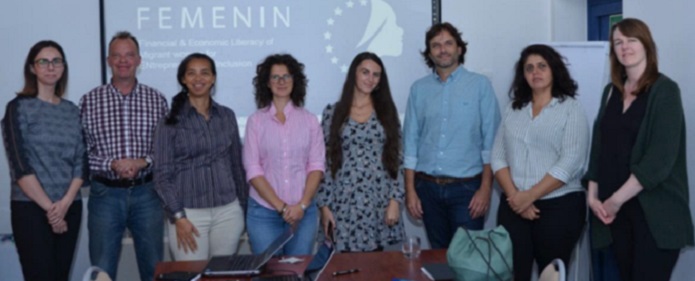
Helping migrant women across Europe set up their own businesses is the ultimate aim of a three-year initiative coordinated by Aspire Education Group.
The London-based learning provider is working with organisations from Ireland, Spain, Romania, Poland and Turkey on the Financial and Economic Literacy of Migrant Women for Entrepreneurship Inclusion (FEMENIN) project – with the backing of €433,000 of Erasmus+ funding.
“Migrant women continue to face challenges in the European labour market and are underrepresented in entrepreneurship activities,” said Aspire Education director, Adrian Sladdin.
“They face specific challenges when setting up and running a business, including access to information and training, networks for business purposes, financial skills and start-up finance.”
FEMENIN will tackle these issues by developing a specialist curriculum, multi-lingual online education resources and ICT tools to help adult education teachers and trainers provide high-quality learning opportunities in financial and economic literacy to migrant women, supporting their entrepreneurship.
Adult and vocational education and training staff and experts from all partner countries will be involved in creating and piloting the teaching resources, alongside migrant women themselves at the pilot stages.
Flexibility will be built in to allow for variances in needs and financial processes and regulations in different countries and the varying skill levels of the target learners, which can already be quite high in many cases.
“You need to look at the starting base for learners and not assume, for example, that just because they have English as a second language that their mathematics is of a similar level,” said Adrian.
“You could have some really incredibly skilled people and it’s just about empowering them to use those skills. I think empowerment is always a keyword behind these projects.
“Imagine if you or I were transplanted from our natural geography to somewhere else in the world, clearly the first thing we would think about is not, ‘Guess what? I think I’ll start a business and take out a business loan’.
I think empowerment is always a keyword behind these projects.
“There are more fundamental things about putting down roots, getting your kids into school and getting a job yourself.
“We’re looking at people who have perhaps been in a country for 12 months or more and have done those things and are now in a position to think, ‘How can I be more entrepreneurial? How can I use these skills, this innovation that I think I’ve got here?’.”
Adrian’s hope is that the resources developed by FEMENIN will be adaptable enough to become widely used across Europe and beyond for many years to come.
“It’s not just about the number of learners we reach and the number of countries we reach, it’s about sustainability,” he said.
“One of the key concerns I have with all projects of this type is that when the funding stops where’s the enthusiasm, where’s the will to make them sustainable to make the benefits last longer?
“I’d love it if you came back to me in five years’ time and I could say FEMENIN is flourishing, it’s being used as a training tool and it’s being held up as best practice.
“With blended learning there’s a great opportunity to go way beyond the parameters of the project and, with all the global links of the partners, to say that this not only works for us or works in Europe but that globally we can use it as a solution.”
Feeling inspired? See what your adult education organisation could achieve with Key Action 2 funding.
